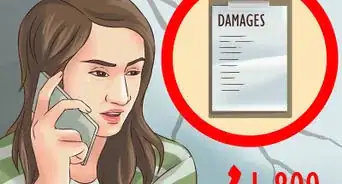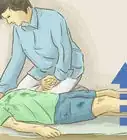This article was co-authored by wikiHow Staff. Our trained team of editors and researchers validate articles for accuracy and comprehensiveness. wikiHow's Content Management Team carefully monitors the work from our editorial staff to ensure that each article is backed by trusted research and meets our high quality standards.
This article has been viewed 146,966 times.
Learn more...
Identifying hail damage on your belongings, such as patio furniture or your car, is relatively straightforward. The round dings in metal are obvious signs of hail damage. However, determining whether your roof has sustained damage from a hailstorm may be a little more difficult. It's important to keep your roof in top condition to avoid structural deterioration that may cause leaks. Many insurance companies will consider paying for a roof that has been damaged by hail, but it must be correctly assessed. Insurance adjusters will require the opinion of a professional roofing contractor before they will consent to the work being done, but you can also check for hail damage yourself before calling a roofer by following these tips.
Steps
-
1Search for damage on the metal. Check metal roof vents, flashing or metal valleys on the roof to see if there are any dents.[1] Soft metal will show dents, and also indicate the size of the hail.
-
2Set up a ladder to your roof to examine the top of the roof.
- Check the ridge cap of the roof for dents.[2] This area of the roof will receive the most damage from hail since it is flat and will take a direct hit in a storm.
- Look at the shingles. Check the whole shingle, as well as the edges, for signs of damage.
Advertisement -
3Identify the types of damage caused by hail. The 3 major signs of hail damage include bruising, cracking and granules missing from asphalt.[3]
- Check for missing pieces in the asphalt of the roof. Look for areas on the shingle that have exposed, black substrate. This means the granules of the asphalt have been compromised or knocked off by something.
- Search for bruising in the shingles. Dents from hail are not always completely visible. Run your hand over the shingle to feel for small dimples in the surface. Press 1 of the dimples to see if it has any give. If it does, this is a sign that the shingle has begun some deterioration.
- Look for cracking in the shingle. Large hail can make a circular crack if the hail hits it hard enough.
Community Q&A
-
QuestionWe had a micro-burst in our town. I have had three contractors check my roof and say I have damage, but my insurance company says that the granules need to be impeded in the dimple for it to be hail. Any advice?
 Community AnswerContractors have a vested interest in stating there is storm damage to your roof. In other words, they stand to profit from the roof being damaged. Therefore, their opinion is inherently biased. Your insurance company is federally-regulated, and while there is certainly subjectivity in assessing jail damage to asphalt shingles, most engineering research indicates that a bruise to the matting of the shingle is necessary to assess a hail mark to a shingle as physical damage.
Community AnswerContractors have a vested interest in stating there is storm damage to your roof. In other words, they stand to profit from the roof being damaged. Therefore, their opinion is inherently biased. Your insurance company is federally-regulated, and while there is certainly subjectivity in assessing jail damage to asphalt shingles, most engineering research indicates that a bruise to the matting of the shingle is necessary to assess a hail mark to a shingle as physical damage. -
QuestionHow do the granules on the shingles help protect the roof? If they are removed by a hail storm, does that make the shingles useless?
 Community AnswerThe granules block the sun's damaging UV rays. You'll get maybe 10 years out of a naked asphalt roof.
Community AnswerThe granules block the sun's damaging UV rays. You'll get maybe 10 years out of a naked asphalt roof. -
QuestionWill I get an honest opinion from a contractor who is being paid by the insurance company to examine the roof?
 Community AnswerNot really. They'll want to do the whole roof or as large an area as possible to honor their warranty. This isn't actually dishonest and is in your best interest (you get a new roof or section), but it's almost never necessary and they're essentially gouging insurance to raise your and everyone's "premiums." Insurance cost tripled in my area for a once in a century storm and won't go down again unless and until the insurance companies pay themselves back many times over.
Community AnswerNot really. They'll want to do the whole roof or as large an area as possible to honor their warranty. This isn't actually dishonest and is in your best interest (you get a new roof or section), but it's almost never necessary and they're essentially gouging insurance to raise your and everyone's "premiums." Insurance cost tripled in my area for a once in a century storm and won't go down again unless and until the insurance companies pay themselves back many times over.
Warnings
- Always use caution when setting up a ladder. Make sure it is stable and positioned correctly against the side of the house.⧼thumbs_response⧽
- Use caution when walking on your roof. Wear shoes with a good grip and avoid walking to close to the edges of the roof.[5]⧼thumbs_response⧽
Things You'll Need
- Ladder
References
- ↑ https://www.roofing.life/hail-damage-roof/
- ↑ https://adjusterlicenseonline.com/blog/how-to-spot-hail-damage-on-roofs/
- ↑ https://www.travelers.com/resources/weather/hail/identifying-hail-damage-to-your-roof
- ↑ https://www.visexterior.com/blog/how-to-identify-hail-damage-to-your-roof-and-siding
- ↑ https://www.tulsaprotech.com/roof-hail-damage/
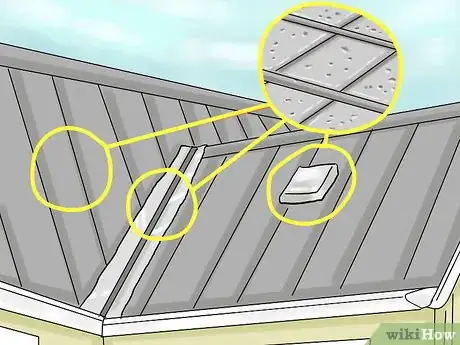
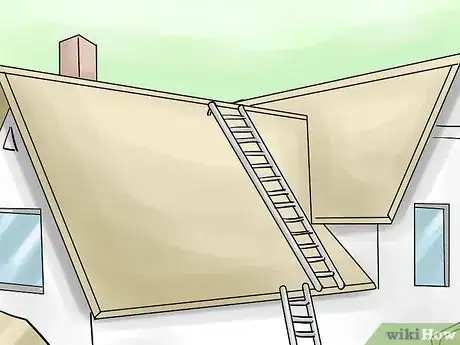
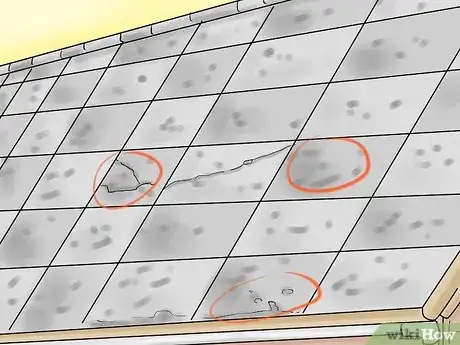
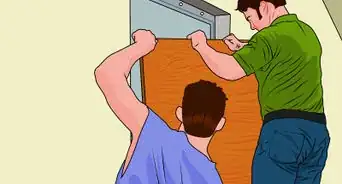
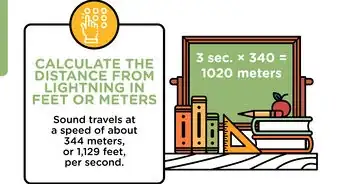
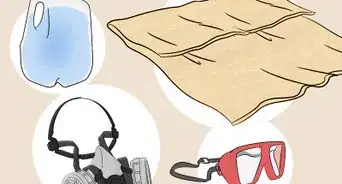



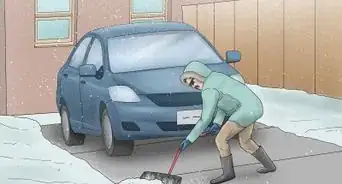
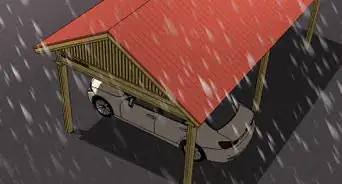
-Step-13.webp)

